France, officially the French Republic, is primarily located in Western Europe with overseas regions and territories. It borders Belgium, Luxembourg, Germany, Switzerland, Italy, Monaco, Andorra, and Spain. Metropolitan France stretches from the Rhine to the Atlantic, and from the Mediterranean Sea to the English Channel and the North Sea. It has 18 integral regions covering 632,702 km2 and a population estimated at 69.1 million in 2026. Paris serves as its capital, largest city, and main cultural and economic center.
1904: Entente Cordiale with the United Kingdom
Since 1904, France has maintained an "Entente Cordiale" with the United Kingdom.
1905: Establishment of State Secularism
In 1905, state secularism was officially established in France.
1905: Law on the Separation of the Churches and the State
In 1905, the law on the Separation of the Churches and the State established the concept of laïcité, a strict separation of church and state.
1919: Francis Poulenc's piano suite Trois mouvements perpétuels
In 1919, Francis Poulenc created his piano suite Trois mouvements perpétuels.
1921: Wave of Immigration
Between 1921 and 1935, about 1.1 million net immigrants came to France.
1923: Francis Poulenc's ballet Les Biches
In 1923, Francis Poulenc created his ballet Les Biches.
1923: 24 Hours of Le Mans
Since 1923, France is famous for its 24 Hours of Le Mans sports car endurance race.
1924: Paris hosts the Summer Olympics and France introduced Olympics for deaf people
In 1924, Paris hosted the Summer Olympics and France introduced Olympics for deaf people (Deaflympics).
1928: Francis Poulenc's Concert champêtre
In 1928, Francis Poulenc composed the Concert champêtre for harpsichord and orchestra.
1935: Wave of Immigration
Between 1921 and 1935, about 1.1 million net immigrants came to France.
1940: France Invaded by Nazi Germany
In 1940, France was invaded and quickly defeated by Nazi Germany, leading to the division of the country and the establishment of the Vichy government.
1942: Deportation of French Citizens
From 1942, about 160,000 French citizens were deported to death and concentration camps.
June 1944: Allied Invasion of Normandy
On June 6, 1944, the Allies invaded Normandy, ultimately restoring French sovereignty.
1944: Liberation of France
In 1944, France was liberated, leading to the establishment of the short-lived Fourth Republic.
1946: Establishment of the Fourth Republic
In 1946, a new constitution resulted in the Fourth Republic, which saw strong economic growth.
1947: Rally of the French People
In 1947, the Gaullist Party changed its name to the Rally of the French People.
1954: Defeat in French Indochina
In 1954, France was defeated by the Viet Minh in its attempt to regain control of French Indochina.
1957: Francis Poulenc's opera Dialogues des Carmélites
In 1957, Francis Poulenc composed the opera Dialogues des Carmélites.
May 1958: May 1958 Crisis
During the May 1958 crisis, the weak Fourth Republic gave way to the Fifth Republic, which included a strengthened presidency.
1958: Approval of the Constitution
In 1958, the Constitution of the Fifth Republic was approved by referendum.
1958: Establishment of the Fifth Republic
In 1958, the Fifth Republic was formed by Charles de Gaulle, featuring a semi-presidential system.
1958: Union of Democrats for the Republic
In 1958, the Gaullist Party changed its name to the Union of Democrats for the Republic.
1958: French Constitution of 1958
The French Constitution of 1958 further codified the prohibition of the government from collecting data on ethnicity and ancestry.
1959: Francis Poulenc's Gloria
In 1959, Francis Poulenc created the Gloria for soprano, choir and orchestra.
1960: Recognised Nuclear State
France has been a recognised nuclear state since 1960.
1960: European Nations' Cup
France hosted the European Nations' Cup in 1960.
1960: Dominance of the French high fashion industry
France renewed its dominance of the high fashion industry in the years 1860–1960 through the establishment of the great couturier houses such as Chanel, Dior, and Givenchy.
1962: Évian Accords and Algerian Independence
In 1962, the Évian Accords led to Algerian independence, accompanied by significant displacement and migration.
1963: Élysée Treaty with Germany
Since the 1963 Élysée Treaty, France has developed close ties with reunified Germany to become the most influential driving force of the EU.
May 1968: Revolt of May 1968
The revolt of May 1968 in France had a significant social impact, marking a shift in moral ideals but ultimately leading to a split between the French and de Gaulle.
1968: Grenoble hosted the Winter Games
Grenoble hosted the Winter Games in 1968.
1969: Socialist Party
In 1969, the French Section of the Workers' International was succeeded by the Socialist Party.
1971: Creation of Environment Ministry
In 1971, France was one of the first countries to create an environment ministry.
1973: Response to the Oil Crisis
Following the 1973 oil crisis, France heavily invested in nuclear power.
1973: Oil Crisis and Energy Security Policy
In 1973, France began a strong policy of energy security, involving major investment in nuclear energy due to the oil crisis.
1973: End of Baby Boom
In 1973, the end of the baby boom was recorded.
1974: ORTF split into several national institutions
In 1974, after years of centralised monopoly on radio and television, the governmental agency ORTF was split into several national institutions, but the three already-existing TV channels and four national radio stations remained under state control.
1976: Rally for the Republic
In 1976, the Gaullist Party changed its name to the Rally for the Republic.
1977: Paris new building height restriction
In Paris, since 1977, new buildings were restricted to a maximum height of 37 metres (121 ft).
1981: Free broadcasting allowed
In 1981 the French government allowed free broadcasting in the territory.
1982: Peak of public sector employment
At its peak in 1982, the public sector in France accounted for one-fifth of industrial employment and over four-fifths of the credit market.
1990: Gayssot Act
France has laws against racism and antisemitism, while the 1990 Gayssot Act prohibits Holocaust denial.
1990: EU Carbon Emissions Targets
Like all European Union state members, France agreed to cut carbon emissions by at least 20% of 1990 levels by 2020.
1990: Increase in Forest Area
Since 1990, forest area in France has increased by 7 per cent.
1992: Albertville hosted the Winter Games
Albertville hosted the Winter Games in 1992.
1992: Signing of the Maastricht Treaty
In 1992, France signed the Maastricht Treaty, contributing to the development of the European Union.
1993: Exclusion of culture and audiovisuals from WTO liberalised sectors
In 1993, France successfully convinced all EU members to refuse to include culture and audiovisuals in the list of liberalised sectors of the WTO.
1994: Low Total Fertility Rate
In 1994, the total fertility rate in France reached a low of 1.7.
1995: Public Transport Bombings
In 1995, France experienced public transport bombings, marking the beginning of a series of Islamist attacks.
1995: Religious movements listed as dangerous cults
The Parliament has listed many religious movements as dangerous cults since 1995.
1997: WHO Ranking of Health Care System
The French health care system was ranked first worldwide by the WHO in 1997.
1997: End of national conscription
There has been no national conscription in France since 1997.
1999: Establishment of the Eurozone
In 1999, France helped establish the eurozone as part of its involvement in the European Union.
1999: Civil unions for homosexual couples permitted
Since 1999, civil unions for homosexual couples have been permitted in France.
2000: WHO Assessment of Health Care
In its 2000 assessment, the World Health Organization (WHO) found that France provided the "close to best overall health care" in the world.
2004: Ban on conspicuous religious symbols in schools
France banned wearing conspicuous religious symbols in schools since 2004.
2004: Institut Montaigne Estimate of Ethnic Groups
In 2004, the Institut Montaigne estimated that within Metropolitan France, 51 million people were white (85% of the population), 6 million were northwest African (10%), 2 million were black (3.3%), and 1 million were Asian (1.7%).
2004: Madrid Train Bombings
In 2004, the Madrid train bombings occurred, the deadliest attack in the European Union since World War II. France was also affected by the aftermath of these attacks.
2004: Decrease in Asylum Applications
In 2005, France was Western Europe's leading recipient of asylum seekers, with an estimated 50,000 applications, albeit a 15% decrease from 2004.
2005: Leading Recipient of Asylum Seekers
In 2005, France was Western Europe's leading recipient of asylum seekers, with an estimated 50,000 applications.
2005: UNESCO confirms decision on cultural exception
In 2005, the decision to treat culture differently from other commercial products was confirmed in a vote by UNESCO.
2006: Michelin Guide stars awarded to French restaurants
By 2006, the Michelin Guide had awarded 620 stars to French restaurants.
2006: Population Growth Average
From 2006 to 2011, population growth averaged 0.6 percent per year.
2007: Native Languages
According to the 2007 Adult Education survey, French is the native language of 87% of the population, or roughly 56 million people.
2007: Inhabitants living with HIV/AIDS
As of 2007, approximately 140,000 inhabitants (0.4%) are living with HIV/AIDS.
2007: Signing of the Treaty of Lisbon
In 2007, France signed the Treaty of Lisbon, further advancing the supranational European Union.
2007: Union for a Popular Movement
In 2007, the Gaullist Party changed its name to the Union for a Popular Movement.
2008: Minority Ancestry Groups
A 2008 poll estimated that the largest minority ancestry groups were Italian (5 million), followed by northwest African (3–6 million), Sub-Saharan African (2.5 million), Armenian (500,000), and Turkish (200,000).
2008: Railway Network Extent
As of 2008, the railway network in France stretched 29,473 kilometers (18,314 mi).
2008: Increase in Renewable Energy Production
Between 2008 and 2019, France's production capacity from renewable energies rose consistently, nearly doubling.
2008: Government initiative to help the print media sector
In 2008, the French government launched a major initiative to help the print media sector reform and become financially independent.
2008: Immigrant Population
In 2008, the number of foreign-born immigrants was around 5 million (8% of the population), while their French-born descendants numbered 6.5 million, or 11% of the population.
2009: Growth of Spanish Immigrant Population
Between 2009 and 2012, statistics on Spanish immigrants in France show a growth of 107 per cent, with the population growing from 5,300 to 11,000.
2009: Disneyland Paris visitors
In 2009, Disneyland Paris had 15 million combined visitors to the resort's Disneyland Park and Walt Disney Studios Park.
2009: Carbon Tax Plan Abandoned
In 2009, France was set to impose a carbon tax but abandoned the plan due to fears of burdening French businesses.
2009: Government aid to print media due to financial crisis
In 2009, the French government had to give €600,000 to help the print media cope with the 2008 financial crisis, in addition to existing subsidies.
2010: Ban on face-covering Islamic veils
In 2010, France banned the wearing of face-covering Islamic veils in public.
2010: Asylum Applications
In 2010, France received about 48,100 asylum applications.
2010: Newborns with Foreign-Born Parents
In 2010, roughly one in four newborns (27 percent) in Metropolitan France had at least one foreign-born parent.
2010: Rise in Total Fertility Rate
In 2010, the total fertility rate in France rose to 2.0.
2011: Health Care Spending
In 2011, France spent 11.6% of its GDP on health care, or US$4,086 per capita.
2011: Population Growth Since 2011
Since 2011, annual population growth has been between 0.4 and 0.5 percent annually.
2011: Decline in Fertility Rate
Since 2011, the fertility rate in France has been steadily declining.
2012: Intervention in the Mali War
From 2012 to 2021, France and other African states intervened in support of the Malian government in the Mali War.
2012: Religious Buildings
In 2012, among the 47,000 religious buildings in France, 94% were Catholic churches.
2012: Foreigners Coming to France
In 2012, of the total of 229,000 foreigners coming to France, nearly 8% were Portuguese, 5% British, 5% Spanish, 4% Italian, 4% German, 3% Romanian, and 3% Belgian.
2013: France as the second-largest exporter of films
In 2013, France was the second-largest exporter of films in the world, after the United States.
2013: Same-sex marriage and LGBT adoption legalized
Since 2013, same-sex marriage and LGBT adoption are legal in France.
2014: Opération Chammal begins
In 2014, Opération Chammal, France's military efforts to contain ISIS, began, killing over 1,000 ISIS troops between 2014 and 2015.
November 2015: November 2015 Paris Attacks
In November 2015, Paris experienced deadly attacks resulting in 130 deaths, marking the deadliest attack on French soil since World War II and the deadliest in the European Union since the Madrid train bombings in 2004.
2015: French Armed Forces Ranking
According to a 2015 study by Crédit Suisse, the French Armed Forces ranked as the world's sixth-most powerful military and the second most powerful in Europe.
2015: France as a leader in filmmaking
As of 2015, France was producing more films than any other European country.
2015: Networked State
In 2015 France was described as "the best networked state in the world" due to its membership in more international institutions than any other country.
2015: The Republicans
In 2015, the Gaullist Party changed its name to The Republicans.
2016: Population Growth in the EU
Between 2006 and 2016, France saw the second-highest overall increase in population in the EU and was one of four EU countries where natural births accounted for the most population growth.
2016: Administrative Regions Division
Since 2016, France is divided into 18 administrative regions: 13 regions in metropolitan France (including Corsica), and five overseas.
2017: LVMH as the largest luxury company
According to 2017 data compiled by Deloitte, Louis Vuitton Moet Hennessey (LVMH), a French brand, is the largest luxury company in the world by sales.
2017: Emmanuel Macron Becomes President
In 2017, Emmanuel Macron became the President of France.
2017: Increase in Asylum Applications
In 2017, France saw the number of asylum applications double to 100,412.
2017: Fourth-largest donor of development aid
In 2017, France was the world's fourth-largest donor of development aid in absolute terms, representing 0.43% of its GNP.
2017: La République En Marche! becomes dominant force
In the 2017 presidential and legislative elections, the radical centrist party La République En Marche! (LREM) became the dominant force, overtaking both Socialists and Republicans. LREM's opponent in the second round of the 2017 and 2022 presidential elections was the growing far-right party National Rally (RN).
2018: Fifth-largest trading nation
In 2018 France was the fifth-largest trading nation and second-largest in Europe, with the value of exports representing over a fifth of GDP.
2018: EDF electricity production
In 2018, EDF produced roughly one-fifth of the EU's electricity, primarily from nuclear power.
2018: Forest Landscape Integrity Index Score
In 2018, France had a Forest Landscape Integrity Index mean score of 4.52/10.
2018: Musée d'Orsay voted best museum
The Musée d'Orsay was voted best museum in the world in 2018.
2018: OECD Ranking of Education
The Programme for International Student Assessment, coordinated by the OECD, ranked France's education as near the OECD average in 2018.
June 28, 2019: Record High Temperature
On June 28, 2019, the temperature in Vérargues reached 46 °C, setting a temperature record in Metropolitan France since records began.
2019: Number of Regional Nature Parks
As of 2019, there were 54 PNRs (regional nature parks) in France.
2019: Increase in Renewable Energy Production
Between 2008 and 2019, France's production capacity from renewable energies rose consistently, nearly doubling.
2019: Global Competitiveness Report Ranking
France is the 15th most competitive according to the 2019 Global Competitiveness Report.
2019: Foreign Direct Investment Ranking
In 2019, France ranked first in Europe and 13th in the world in foreign direct investment, with European countries and the United States being leading sources.
2020: Environmental Performance Index Ranking
According to the 2020 Environmental Performance Index, France was ranked the fifth most environmentally conscious country in the world.
2020: Bloomberg Innovation Index Ranking
France is among the world's 10 most innovative countries in the 2020 Bloomberg Innovation Index.
2020: The Ecologists perform well in mayoral elections
Since 2020, The Ecologists have performed well in mayoral elections in major cities.
2020: INSEE Revision of Metropolitan Area Borders
Since its 2020 revision of metropolitan area borders, INSEE considers that Nice is a metropolitan area separate from the Cannes-Antibes metropolitan area.
2021: Intervention in the Mali War
From 2012 to 2021, France and other African states intervened in support of the Malian government in the Mali War.
2021: Energy exporter
In 2021, France was the biggest energy exporter in Europe, mostly to the UK and Italy, and the largest net exporter of electricity in the world.
2021: Metropolitan Area Population
In 2021, Paris had a metropolitan area population of 13,171,056 inhabitants.
2021: Regional daily newspapers sales doubling national newspapers sales
In 2021, regional daily newspapers, such as Ouest-France, Sud Ouest, La Voix du Nord, Dauphiné Libéré, Le Télégramme, and Le Progrès, more than doubled the sales of national newspapers, such as Le Monde, Le Figaro, L'Équipe (sports), Le Parisien, and Les Echos (finance).
2021: Share of Children with Foreign-Born Mothers
In 2021, the share of children of foreign-born mothers in France was 23 percent.
2022: Health Care Spending Per Capita
In 2022, average health care spending per capita was US$8,630, representing 12.1% of GDP.
2022: Migrants Coming to France
In 2022, more than 320,000 migrants came to France, with the majority coming from Africa.
2022: New Ecological and Social People's Union and National Rally
In 2022, the New Ecological and Social People's Union was the second-largest voting block elected to the lower house, and the right-wing populist National Rally (RN) became the largest opposition party in the National Assembly.
2022: Macron Re-elected
In the 2022 presidential election, Macron was re-elected.
2022: Louvre visitors
The Louvre, which is the most visited art museum in the world, had 7.7 million visitors in 2022.
2022: Weapons Exports
Weapons exported from France totalled 27 billion euros in 2022, up from 11.7 billion euros the previous year. The UAE contributed more than 16 billion euros arms to the French total.
2023: Military Expenditure
France's annual military expenditure in 2023 was US$61.3 billion, or 2.1% of its GDP.
2023: Fertility Rate in France
In 2023, the fertility rate in France stood at 1.79 per woman.
2024: Abortion protected in constitution
In 2024, France became the first nation in the European Union to explicitly protect abortion in its constitution.
2024: France as a Top Tourist Destination
In 2024, France was the world's leading tourist destination, welcoming over 100 million foreign visitors.
2024: Projected Aging Population
It is projected that one in three French people will be over 60 by 2024.
2024: Paris will host the Summer Olympics
Paris will host the Summer Olympics in 2024.
2025: Global Innovation Index and Economic Ranking
As of 2025 France is the world's ninth largest economy by purchasing power parity and ranked 13th in the 2025 Global Innovation Index.
2025: Sébastien Lecornu Appointed Prime Minister
In 2025, Sébastien Lecornu became the Prime Minister of France.
2025: Lowest Fertility Rate Since WWI
In 2025, the fertility rate in France dropped to 1.56, the lowest rate since the end of the first World War.
2026: Population Estimated
In 2026, the total population of France is estimated to be 69.1 million.
2040: Planned Expansion of Hydropower
France aims to further expand hydropower into 2040.
2044: Projected Population Growth
France is projected to continue growing in population until 2044.
Mentioned in this timeline
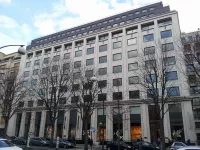
LVMH is a French multinational luxury goods conglomerate formed in...
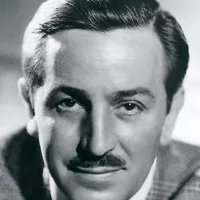
Walter Elias Disney was a highly influential American animator film...
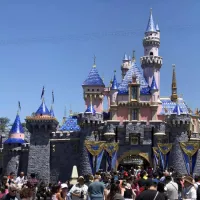
Disneyland located in Anaheim California is the first theme park...
Germany officially the Federal Republic of Germany is a nation...
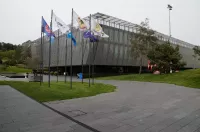
FIFA the F d ration Internationale de Football Association is...
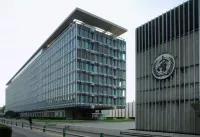
The World Health Organization WHO is a specialized agency of...
Trending
1 hour ago Canada vs New Zealand T20 World Cup 2026: Thrill, Live Scores, and Game Updates.
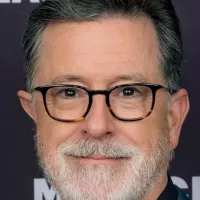
8 months ago Zohran Mamdani's success highlights Jewish divide; Israelis fear New York threat after Iran missiles.

1 hour ago Shia LaBeouf Spotted at New Orleans' Mardi Gras Bar Crawl, Draws Mixed Reactions.
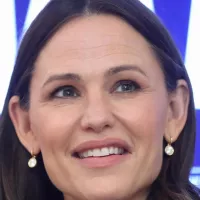
1 hour ago Jennifer Garner Promotes 'The Last Thing He Told Me' in Stunning Black Dress.

1 hour ago Netanyahu pushes for dismantling Iran's nuclear program amid US-Israel strategy differences.
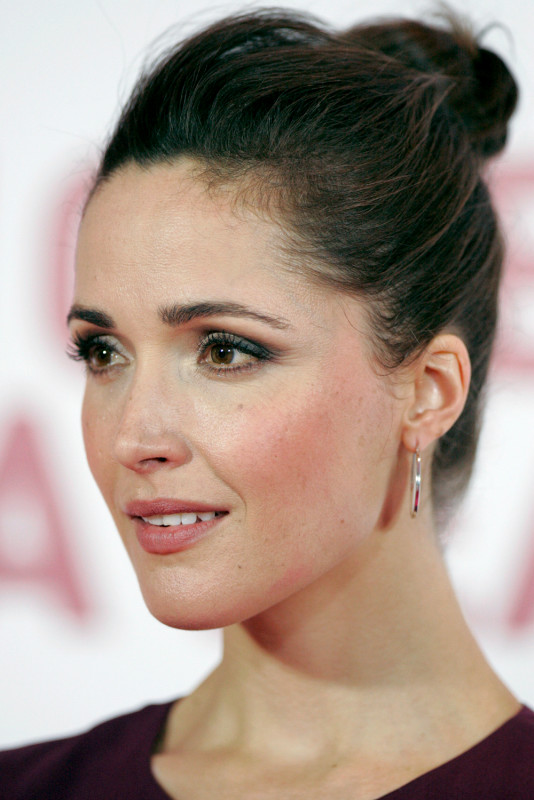
1 hour ago Rose Byrne Wins Spirit Award and Stuns in Bold Dress at Film Awards.
Popular
Randall Adam Fine is an American politician a Republican who...

Pam Bondi is an American attorney lobbyist and politician currently...

Kid Rock born Robert James Ritchie is an American musician...

Barack Obama the th U S President - was the...
The Winter Olympic Games a major international multi-sport event held...

XXXTentacion born Jahseh Dwayne Ricardo Onfroy was a controversial yet...